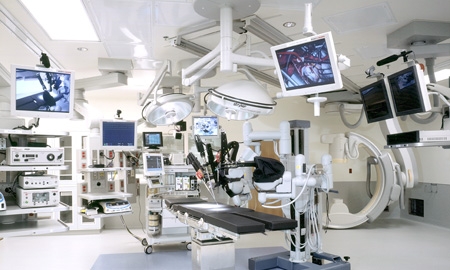Colombia is quickly becoming a principal destination for medical tourism as its health industry grows, obtaining some of the most advanced equipment on the market and offering it to patients for considerably cheaper than in the rest of the world.
In fact, although Colombian medical facilities use cutting-edge technology, its cost of doing a procedure can be up to 70 per cent cheaper than in Europe. For example, whereas knee surgery can cost €30,000 in Europe, in Colombia it would cost €8,400. Similarly, heart bypass surgery may cost €18,300 in the Latin American nation where in the developed world’s health market it could cost as much as €99,000.
But really it is the elective procedures such as cosmetic surgery and even, sometimes dental care that have caused this boom in medical tourism, with people from as far as Europe or the US travelling to Colombia to save money. The procedures usually are performed by trusted doctors in accredited medical institutions.
Much of the reason that the tourists trust Colombia’s medical industry is because companies such as TM Médicas, an enterprise which distributes advanced medical equipment to high-end clinics, ensure that the industry is equipped with the most state-of-the-art resources possible.
TM Médicas is deeply committed to the Colombian health sector, providing efficient service throughout the country. It has branches in some of the most important cities including Cali in the west, Medellín, the second-largest city, located in the north, and the nation’s capital of Bogotá.
The company’s catalogue provides a wide variety of services ranging from medical emergency equipment to heart health as well as advanced surgery instruments. One of its newest products is the Mirocam, a cutting-edge pill-sized camera which monitors the digestive track, sending the information wirelessly to a computer.
Much of the improvements in the health sector are due to the innovative work of professional private companies such as TM Médicas. However, the government also plays a significant role. President Juan Manuel Santos has been a tenacious advocate for growth and betterment of the health sector, guaranteeing 1.2 billion Colombian pesos (half a million euros), every month over the next 10 years.
President Santos, dedicated also to closing the socioeconomic inequality gap in the country, has been vocal about making health care a right for every Colombian, not just the rich. Although inequality in medical care has been a persistent problem in Colombia and throughout Latin America, President Santos has gone on record saying that there will be no more “first and second class patients” and that no citizen can be denied medical care.
Much improvement in the health care system has been seen in Colombia since 2008. The Latin American country currently spends roughly 7 per cent of its GDP on healthcare per year; the country’s economic growth will furthermore allow additional money to be invested into social sectors, such as health for continued improvement. The government also works with international health organisations such as the Amazon Malaria Initiative, to curb some of the challenging diseases that accompany living in a tropical climate.

1 COMMENT
My aunt had an operation in Colombia and we're very happy with the professionally and post-op experience